
views
Becoming a More Sociable Person

Think about what you want in your friends. Improving your social life is as much about knowing what you want as finding people who want to be with you. Take some time to think about the kinds of people you like to hang out with. What do they do? How do they act? What are their "perfect Friday night" plans? Think about old friends you've had and why you enjoy their company. Think about: Hobbies (what would you do together?) Demeanor (serious and academic vs. humorous goof-balls, or a mix of both) Interests (similar tastes in books, movies, music, sports, etc.) Conversation habits (sit, relax and talk vs. do a lot of activities) Energy levels (raging at a bar vs. chilling at a quiet cafe)

Look approachable. Keep a smile on your face, stay well groomed, and wear decent, clean clothes. It's not about being shallow, but about giving a good impression of yourself. This makes people feel comfortable coming up to you to spend time. Make sure you are as clean as possible. Teeth properly brushed and flossed, good deodorant, good perfume, hair clean, deeply clean and moisturized skin and clean clothes. Keep up with a nice style that is still "you". You do not have to "dress up" to be more sociable, you just need to take care of yourself.
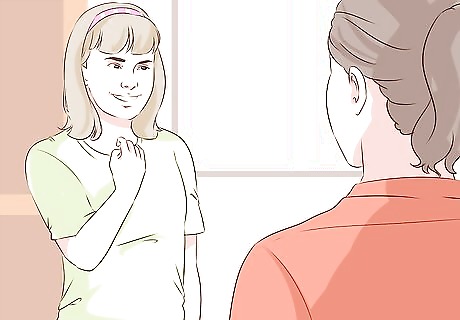
Use open, inviting body language. This signals to people that you are willing to talk and want to be social. People will naturally flock to someone who exudes positive, social energy, and your body language is one of the easiest natural ways to do so. To have open body language: Keep your arms to the side and your shoulders back, opening up your chest. Make eye contact with whoever is talking. Smile frequently. Turn your shoulders to face people as they speak. Keep your chin up, parallel to the floor. Stand and sit tall; avoid looking hunched over.
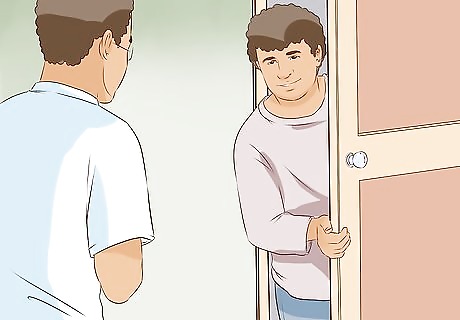
Invite friends over to your house. This is a great, low-key way to practice your social skills in a location that you feel comfortable. You can control the number of people, the activities, and the amount of time you are hanging out. If you are especially shy or have trouble initiating conversations in a group, practicing at home is a great way to improve your sociability. Have a dinner party or invite a person to eat with you at lunch. Host a sport or TV watch party, allowing you to tune into the TV if there is a lull in the conversation.

Maintain your current relationships and friendships. Most relationships only get better with time and age, but they take some work to maintain. This helps you realize what is important to you in a friendship and the types of conversations you enjoy having. These skills will transfer over to your new friendships as well, and your old friends are often the ones who introduce you to new friendships. Talk to your friends once a week or month. Keep making plans with old friends.
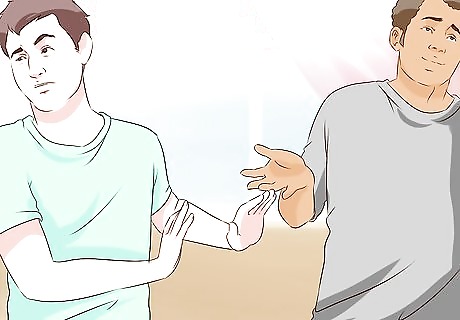
Stop fearing rejection. Don't worry if you don't immediately gel with someone. This isn't your fault, it just means that you and your friends were not compatible. Making friends and being sociable is not about "winning" or racking up the largest amount of friends. It's about finding the one or two people you feel comfortable with. Focus on the quality of interactions, not the quantity. You don't want a bunch of half friends and acquaintances -- you want a few great friends to build a social group around.

Be yourself, not who you think other people want you to be. Lots of people are "normal," and no one wants the same friend over and over. Be weird, be quirky, be interesting-- be yourself. You'll attract similar friends, and these are the connections that you will cherish. Trying to change yourself will only lead to awkwardness and missed connections, because you will never keep up the act. Being more sociable is about being friendly, not cool.
Finding Groups of Friends

Start small by making friends with current acquaintances. There is no reason to run out and go clubbing if you feel your social life is stagnating. Take small steps to build your network of friends, starting by making the most of your current acquaintances. Have a conversation with a co-worker or fellow classmate who you don't normally interact with, reach out to your neighbors, and spend time with someone you don't normally see. You'll be surprised how friendly people will be if you make the effort to talk about something other than work or school. Take advantage of nearby events, like company get-togethers or after-school events, where there is a natural social connection. Accept invitations, even if you feel a little out of place at first. By showing you are receptive to social settings you open yourself up to future groups of friends. Things may be awkward at first, but know that this is natural until you know each other a little better.
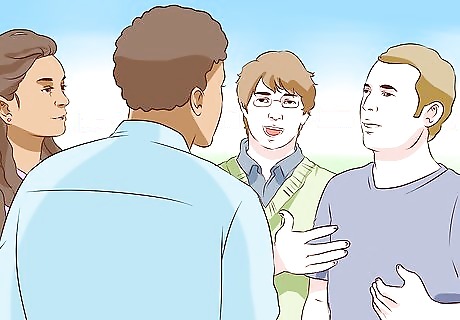
Ask your current friends to bring their friends to events. The best way to meet new people is to use the people you already know. If you're going out, encourage your friends to invite a "plus one." Because you already know your friend, you have a natural introduction that can help get over awkward first meetings. Moreover, your mutual friends likely have common interests and hobbies, meaning you are more likely to connect with someone who is a friend of a friend. Go to your friend's events or parties, especially if you won't know everyone there. Introduce your own friends to get the ball rolling -- bringing an extroverted or interesting friend along signals that you want to meet new people.
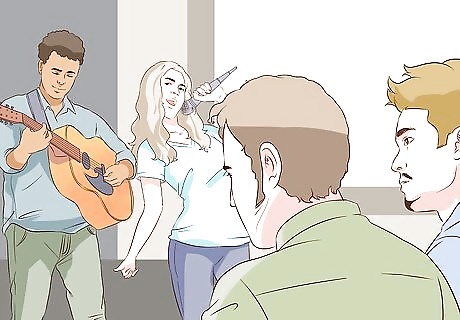
Go places that you feel comfortable. You don't have to go to a super fancy restaurant if it's not your style. This can lead to shyness and a difficulty fitting in with nearby people. You must go places where you feel good, as it will be easier to find similar people to be friends. Love outdoor adventure? Head to your local rock wall and ask for a belay partner to make an instant connection. Love music and concerts? Read your local newspaper for live music venues and check out a concert. Love art and culture? Go to small art galleries or shows in your area and ask the artists about their work, or other people's opinions on the show.

Check out local meet-ups for people with similar hobbies. Ask around town about craft classes, book clubs, and discussion groups that fit your interests. Many newspapers and online town blogs have exhaustive schedules of common meeting places, and new websites like Yelp and Meet-up are social media sites that aggregate meetings by interest or hobby.

Join a recreational league or team to meet other people. Contact your local Parks & Rec department and ask about adult and children sports leagues. Most departments have teams made up of similar people looking to make friends, so don't worry about joining without a team of strangers -- you won't be the only one. There are also a variety of single sports, like tennis and bowling leagues, that fit any person's hobbies.

Go volunteering. Volunteering is a great, low-key way to meet people from all walks of life. You have a natural conversation topic in the work you're doing, and you can keep coming back to the same sites to know people better. There is no commitment, and you can show up as often as you'd like. Check out the SPCA, Red Cross, and American Cancer Society in your area, as most counties have at least one of these offices with volunteer opportunities.
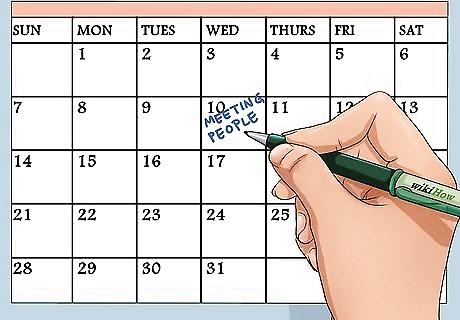
Make time in your week for meeting people. At the end of the day, friends are only going to find you if you take the time to look. Make an effort once a week to go out and meet people wherever you feel comfortable. This could be the local bar, a school football game, or the break room at work. You need to put yourself out there and see what happens -- you'll be surprised how quickly you start making new friends after you commit to making them. Bring along a close friend along to help you feel comfortable, but make sure you don't spend all your time talking to them.
Starting Meaningful Conversations

Start with a simple "hello." It is amazing how many people ignore this simple greeting. If you are shy, however, this is a great, low-pressure way to show that you are interested in making friends and being kind. If you make eye contact, simply say hello to someone. There is no pressure to lead to something bigger, but it opens the door for a more sociable relationship. If they say hello back, introduce yourself! Say your name and ask their name as well.

Make eye-contact and remember their name. This shows that you are interested in them and are sincere about becoming friends. Remembering someone's name is a small but crucial step to creating a lasting friendship. This small step may seem obvious, but remembering and saying someone's name shows you care and makes them feel valued -- a key part of improving your social life.

Think of open-ended conversation topics. When you are first meeting someone there is a wide variety of things you still have to learn about them. Instead of being daunted, look at this as an opportunity. There is a ton of topics you can cover, and there are very few wrong topics. While you might steer away from hot button issues like religion, politics, or sex, there is still a lot to talk about: "What do you do for a living?" "Did you grow up here?" If the answer is no, ask where they grew up. Comment on the location -- have you both been here before? Were you introduced by a common friend? "What do you like doing outside of work?"
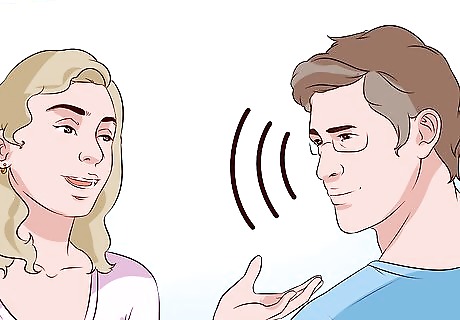
Focus more on listening and less on talking. It is impossible to relax when you are telling yourself to relax. Instead, focus on the other person in the conversation. Listen to them and be curious about their life. Ask questions and get to know them. You don't need to share your life story with someone right off the bat to make conversation, you just need to be able to thoughtfully listen. Follow up questions are key. If you ask "What do you do for work," you can follow up with "do you enjoy what you do?" This keeps the conversation rolling fluidly forward. Being an active listener takes the pressure off of you to keep talking, which makes it easier to hold a conversation.

Give answers longer than one-word. When someone asks you a question, don't dismiss it and move on to another question. Take some time to elaborate on it. Give your opinion, tell a short, related story, or give some reasoning or background behind your answer. Aim to talk for 1-2 minutes before asking them a question or switching the subject. This allows the conversation to flow naturally. The more you talk, the greater the chance you'll inspire another question or a new topic to discuss, as long as you still take the time to listen to their answers.

Give the occasional compliment. Flirting, whether with potential dates or friends, is simply a way to show your interest in someone. It feels good to hear a genuine compliment, and it creates a bond that can move beyond acquaintances and into friendship. The compliment does not have to be huge -- a simple "I love that scarf," or "that's a really good point" is a nice, light way to be a friend. Make sure you compliments are genuine, as people will be turned off if you seem like a "suck-up," or brown-noser.










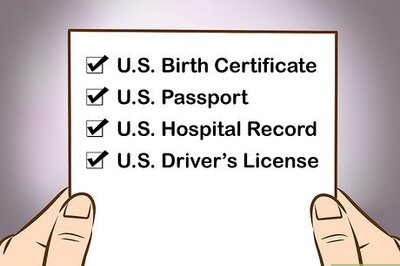









Comments
0 comment